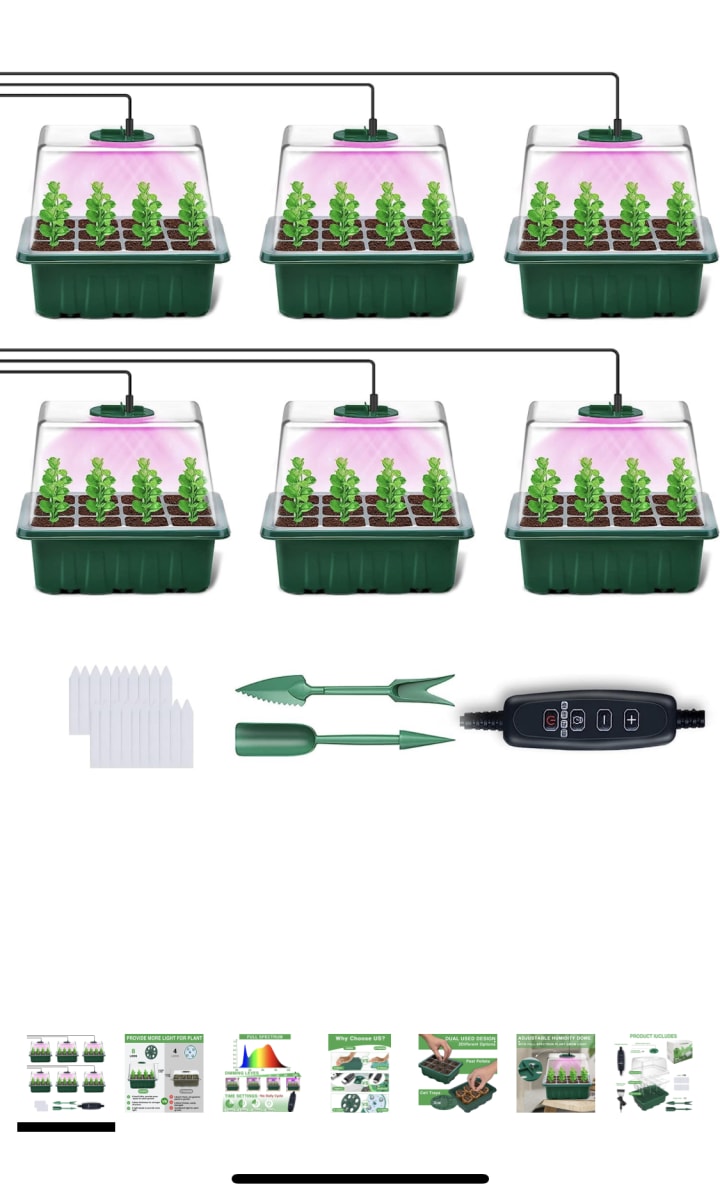
Maintaining a healthy and thriving garden can be a challenging task, especially when pests invade and wreak havoc on your plants. While chemical pesticides are commonly used for pest control, they can have harmful effects on the environment and beneficial insects. Fortunately, there are several natural remedies available that can effectively control garden pests without causing harm. In this article, we will explore five natural remedies for garden pest control that are safe, eco-friendly, and easy to implement.
1. Neem oil:
Neem oil, derived from the neem tree, is a powerful natural insecticide that has been used for centuries. It contains compounds that disrupt the feeding and reproductive cycles of insects, making it an effective pest control option. Dilute neem oil with water according to the instructions on the bottle and spray it on affected plants. Neem oil is particularly effective against aphids, whiteflies, and spider mites.
Cute Gardening set

2. Garlic spray:
Garlic has natural insect-repellent properties and can be used to deter pests in the garden. To make a garlic spray, blend a few cloves of garlic with water and strain the mixture. Dilute the garlic solution with water and spray it on plants to repel pests. Garlic spray is effective against a wide range of pests, including aphids, caterpillars, and beetles.

3. Diatomaceous earth:
Diatomaceous earth is a natural powder made from the fossilized remains of diatoms, a type of algae. It works by dehydrating and killing insects, making it an excellent option for pest control. Sprinkle diatomaceous earth around plants or directly on pests to control their population. It is particularly effective against slugs, snails, and crawling insects.

4. Companion planting:
Companion planting involves growing certain plants together to deter pests. By strategically planting pest-repellent plants near susceptible crops, you can create a natural barrier against pests. For example, marigolds emit a scent that repels aphids, nematodes, and other pests. Planting marigolds near vegetables can help protect them from infestations. Similarly, planting mint near cabbage can deter cabbage moths.
5. Homemade insect traps:
Homemade insect traps are an effective and inexpensive way to control garden pests. For example, a simple trap for slugs and snails can be made by burying a container in the ground and filling it with beer. The pests are attracted to the beer and will drown in the trap. You can also create sticky traps using yellow or blue sticky cards to catch flying insects like whiteflies and aphids.
Homemade garden pest repellents are a natural and cost-effective solution to protect your precious plants from unwanted intruders. By utilizing simple ingredients commonly found in households, these repellents provide an eco-friendly alternative to chemical-laden commercial products. One popular homemade remedy is a mixture of water, dish soap, and garlic. Garlic's strong odor repels a variety of pests such as aphids, slugs, and caterpillars, while the dish soap helps the solution stick to plant leaves. Another effective homemade repellent involves combining chili peppers, water, and vegetable oil. The spicy nature of chili peppers deters insects like ants, aphids, and beetles, while the oil acts as an adhesive agent. Additionally, planting companion plants like marigolds, basil, and lavender can help repel pests naturally by releasing fragrances that discourage their presence. These homemade solutions not only safeguard your garden from harmful pests but also minimize the use of synthetic chemicals, promoting a healthier and more sustainable gardening practice. Remember to test these repellents on a small portion of your plants before applying them widely to ensure they do not cause any adverse effects. With a little experimentation and creativity, you can effectively protect your garden while embracing a greener approach to pest control.
When it comes to garden pest control, natural remedies offer a safe and eco-friendly alternative to chemical pesticides. Neem oil, garlic spray, diatomaceous earth, companion planting, and homemade insect traps are all effective methods to control pests without harming the environment or beneficial insects. By incorporating these natural remedies into your gardening routine, you can maintain a healthy and pest-free garden while promoting biodiversity and sustainability.






Comments
There are no comments for this story
Be the first to respond and start the conversation.